Jewish Feminism
Feminist Studies and Sacred Texts Series
Series Editor
Susanne Scholz ()
Advisory Board
Naomi Appleton, Tamara Cohn Eskenazi, Todd Penner, Sadiyya Shaikh, and Sharada Sugirtharajah
Feminist Studies and Sacred Texts makes available innovative and provocative research on the interface of feminist studies and sacred texts. Books in the series are grounded in religious studies perspectives, theories, and methodologies, while engaging with the wide spectrum of feminist studies, including womens studies, gender studies, sexuality studies, masculinity studies, and queer studies. They embrace intersectional discourses such as postcolonialism, ecology, disability, class, race, and ethnicity studies. Furthermore, they are inclusive of religious texts from both established and new religious traditions and movements, and they experiment with inter- and cross-religious perspectives. The series publishes monographs and edited collections that critically locate feminist studies and sacred texts within the historical, cultural, sociological, anthropological, comparative, political, and religious contexts in which they were produced, read, and continue to shape present practices and discourses.
Titles in Series
Unraveling and Reweaving Sacred Canon in Africana Womanhood, edited by Rosetta E. Ross and Rose Mary Amenga-Etego
Feminist Theory and the Bible: Interrogating the Sources , by Esther Fuchs
Jewish Feminism: Framed and Reframed, by Esther Fuchs
Jewish Feminism
Framed and Reframed
Esther Fuchs
LEXINGTON BOOKS
Lanham Boulder New York London
Published by Lexington Books
An imprint of The Rowman & Littlefield Publishing Group, Inc.
4501 Forbes Boulevard, Suite 200, Lanham, Maryland 20706
www.rowman.com
Unit A, Whitacre Mews, 26-34 Stannary Street, London SE11 4AB
Copyright 2018 by The Rowman & Littlefield Publishing Group, Inc.
All rights reserved . No part of this book may be reproduced in any form or by any electronic or mechanical means, including information storage and retrieval systems, without written permission from the publisher, except by a reviewer who may quote passages in a review.
British Library Cataloguing in Publication Information Available
Library of Congress Cataloging-in-Publication Data
Names: Fuchs, Esther, 1953 author.
Title: Jewish feminism : framed and reframed / Esther Fuchs.
Description: Lanham : Lexington Books, 2018. | Series: Feminist studies and sacred texts series | Includes bibliographical references and index.
Identifiers: LCCN 2017053424 (print) | LCCN 2017055567 (ebook) | ISBN 9781498566506 (electronic) | ISBN 9781498566490 (cloth : alk. paper)
Subjects: LCSH: FeminismReligious aspectsJudaism.
Classification: LCC BM729.W6 (ebook) | LCC BM729.W6 F83 2018 (print) | DDC 305.48/8924dc23
LC record available at https://lccn.loc.gov/2017053424
 The paper used in this publication meets the minimum requirements of American National Standard for Information SciencesPermanence of Paper for Printed Library Materials, ANSI/NISO Z39.48-1992.
The paper used in this publication meets the minimum requirements of American National Standard for Information SciencesPermanence of Paper for Printed Library Materials, ANSI/NISO Z39.48-1992.
Printed in the United States of America
Contents
In the last four decades hundreds of books and essays have been published on women, gender, and Jewish Studies. However, much of this scholarship has not been adequately theorized or contextualized. A frequent complaint in Jewish Womens Studies addresses the lack of dialogue and communication with womens and gender studies in general. This book considers Jewish Womens Studies from a womens and gender studies perspective. It is a critical analysis of the body of knowledge that has become hegemonic in Jewish Womens Studies, focused on the frames that currently constrain it. My goal is to open up communication with the broader field of womens and gender studies.
In this book, I tease out theoretical assumptions from anthologies on gender and women that have been published in the last four decades. I engage critically with the failure to theorize in many of these publications. My critical reading of anthological publications and monographs is, at times, extremely detailed, which is a rather unusual practice in both feminist studies and Jewish Studies. I follow this practice in an attempt to reconstruct a theoretical frame that has not yet been articulated for this new and burgeoning field.
My purpose is also to draw connections, correlate, and juxtapose discrete areas of inquiry that rarely engage each other, and to examine the untapped potentialities of their relationship. In other words, this book aims at thinking about the field as a possible coherence, despite existing disciplinary distinctions. My goal is to open up lines of debate, dialogue, and communication between and among distinct areas of specialized scholarship in Jewish Womens Studies. The critical retrospective I provide here should enable us to rethink the consensus that has emerged in the field in the last few decades. This consensus assumes that the study of women and gender ought to follow the disciplinary arrangement of Jewish Studies.
This book proposes to think about Jewish feminism as a position and a commitment to activist scholarship, rather than as a positivist discourse about women. It advocates a critical engagement both with traditional disciplinary structures in Jewish Studies and with the masculinization of the new cultural Jewish Studies. Currently, the hegemonic assumption is that the task of the feminist researcher is to add information or data about women in any given subfield. Instead, I call for a redefinition of research as an interrogation of existing norms and conventions, a revisionary and transformational kind of knowledge that is embodied, political, and engaged.
As framing is a central concern in this book, I call attention to the basic building blocks of scholarly writingtitles, prefaces, the sequencing of chaptersto the textual, structural, and stylistic tropes of scholarly persuasion. Yet, at the same time, I focus on the detail in the text, especially to details that present themselves as information about women and gender. As I am mostly interested in unraveling the ideological frame of scholarly tropes of persuasion, I often begin with a citation, which I proceed to interrogate as a symptom of a broader unexamined assumption, engaging in an ongoing critical examination of the way in which additional details are stitched together into a seamless representation of the past or the present of Jewish women.
My critical retrospective is aimed at creating a genealogical consciousness, an awareness of ones place in an ongoing chain of Jewish womens thinking about gender, difference, and politics. The current general tendency is to begin each work as if no history of writing exists. The general tendency is to dismiss previous work rather than to explain how new collective works seek to map a new way of thinking about the subject. A genealogical context will eliminate, I hope, in the future, the wasteful reproduction and repetition of what has already been said and done.
Without a Jewish feminist theory and dialogical connection between and among specialists, practitioners are pushed further into the already existing areas of specialization. Jewish Womens Studies continues to be defined by the conventional territorial divisions in which it is currently confined. More often than not these divisions are meaningless and irrelevant to questions of identity, difference, the politics of feminist knowledge, and activist struggles for social justice. Indeed the term feminist is at times deliberately shunned, as editors emphasize their interest in women as a topic of academic, rather than political, engagement.
Disciplinary anthologies in history, literature, and philosophy repeatedly outline the boundaries that separate them from each other despite the shared interest in Jewish women. Thus, while historians study the lives of women, literary critics focus on their texts, and both are ignored in Jewish philosophy. Distinct areas of interest, for example, Israel studies and American studies, or anti-Semitism and Holocaust studies, are cut off from each other in ways that make meaningful dialogue, debate, and communication virtually impossible. This isolation disables the creation of a shared Jewish feminist theory and discourse and weakens each distinct area of specialization. In the last four decades, Jewish Womens Studies emerged as a subfield which is just as fractured and fragmented as the broader field in which it is confined. The focus of inquiry is increasingly narrow, and scholars are made to compete with each other across the divisive boundaries.
Next page
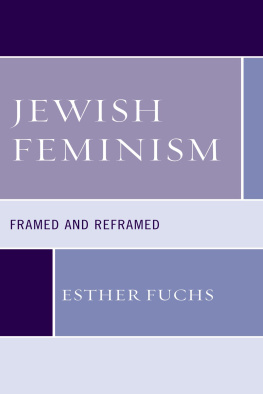

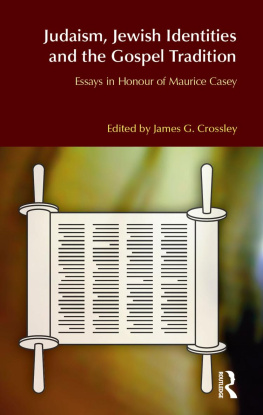
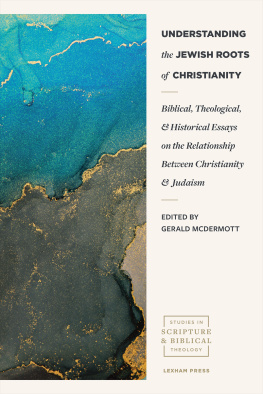
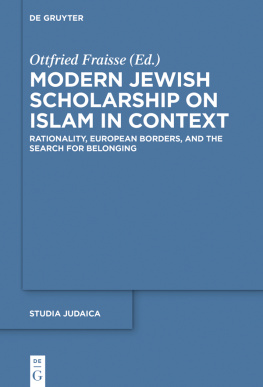
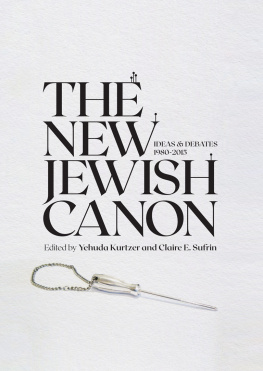
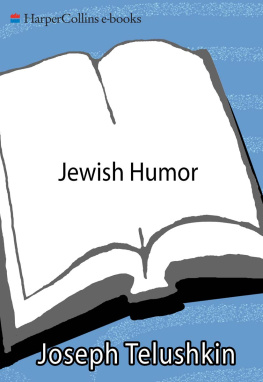
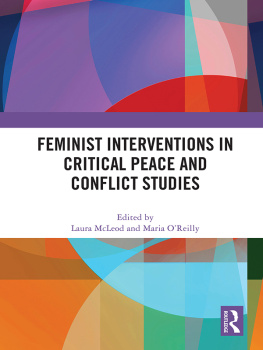
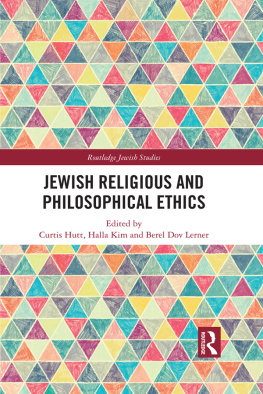
 The paper used in this publication meets the minimum requirements of American National Standard for Information SciencesPermanence of Paper for Printed Library Materials, ANSI/NISO Z39.48-1992.
The paper used in this publication meets the minimum requirements of American National Standard for Information SciencesPermanence of Paper for Printed Library Materials, ANSI/NISO Z39.48-1992.